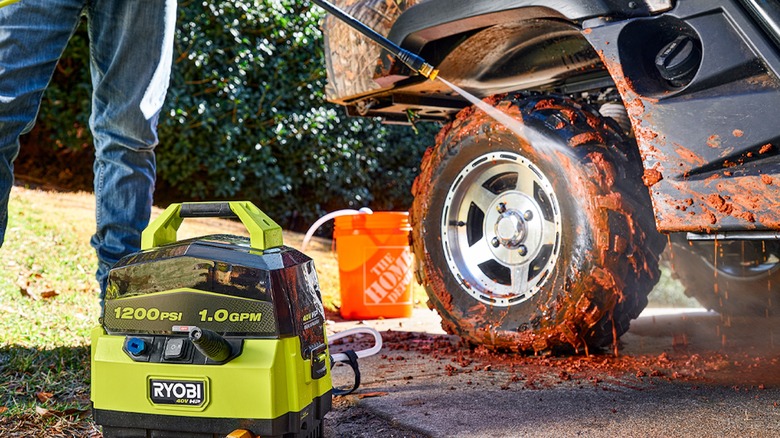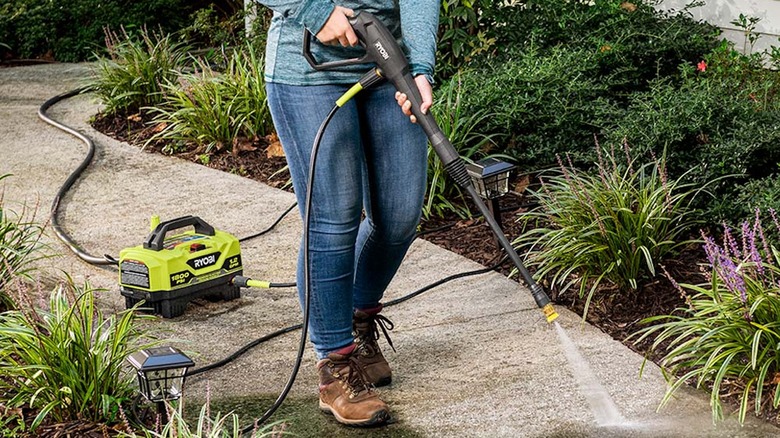Can You Run Hot Water Through A Ryobi Electric Pressure Washer?
Pressure washers can be a good way to deal with heavy amounts of dirt (and other undesirable detritus), but it can be tough to figure out which one is best for you. There are a plethora of models out there from almost as many different brands, including Ryobi's ongoing run of electric washers. Electric pressure washers, in particular, are often a good fit for the average household as they tend to be more affordable, quieter, and lighter than their gas counterparts. But how do they handle hot water?
Some pressure washers are indeed capable of handling hot water, and pressure washing with higher temperatures can be beneficial. Higher temperatures are able to clean up tough oil and grease that a cold pressure washer couldn't. The thing is, not all washers can withstand excessively hot water, and pushing them outside of those parameters is usually not a very good idea.
You should not run hot water through Ryobi pressure washers
Tempting though it may be to use hot water with your pressure washer, Ryobi cautions against using hot water. In the user manuals for several of its pressure washers, it states to "NEVER use hot water or water from pools, lakes, etc." In fact, most Ryobi pressure washers are listed specifically as cold water at Home Depot and other retailers. Though it doesn't explain why that's a bad idea, it's always best to follow the manual. Particularly when it comes to extreme temperatures and using a piece of equipment like a pressure washer.
Pressure washer manufacturer Hotsy also cautions against using water that's too hot, explaining that some hardware is not designed for it. And that using water that's significantly hotter than the system is intended to handle could lead to damage like overheating or melted seals. This can lead to the pressure washer leaking at one or more connection points, losing pressure, or ceasing to function entirely. So unless you know for certain that the washer can handle hot water (again, check the manual first), keep things cold.

